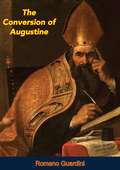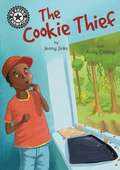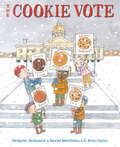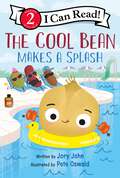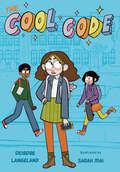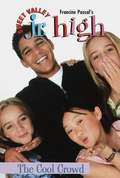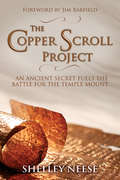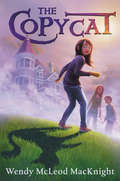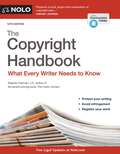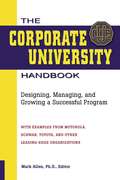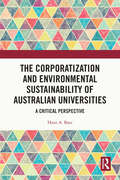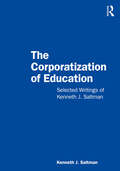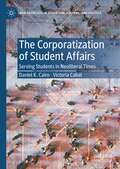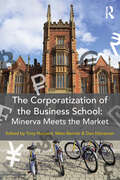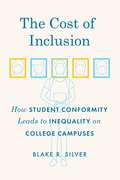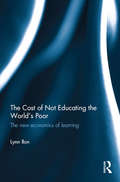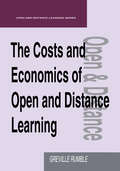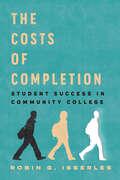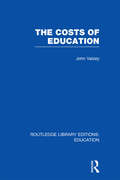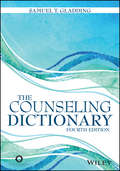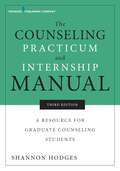- Table View
- List View
The Conversion of Augustine
by Romano GuardiniPenned by Romano Guardini (1885-1968), one of the most profoundly insightful minds of the 20th century, this unique text…is a meditative unfolding of a defining moment in the history of Western civilization. A professor of religion and theology at the University of Munich, as well as a religious humanist, and an accomplished man of letters, Guardini wrote numerous influential works in several fields. This book is no exception to the Guardini rule: lucid explication of ideas and events central to the creation of Western culture. The merit of Guardini's beautiful book, writes Louis Dupre…consists in having restated Augustine's eternal insight in the light and darkness of contemporary existence. This title is, therefore, an unequaled aid for educators, students, and general readers wishing to understand the perennial issues embodied in the conversion from paganism to Christianity of the last Father of the Church.—Goodreads.“Those who know and love the Confessions can expect to be amazed at how much more the personality and the conversion of this great religious genius will mean to them, seen through the eyes...of the author of this penetrating and beautiful study.”—Virginia Kirkus“For all libraries concerned with theology, philosophy, and the spiritual giants of our Christian era, this book is a rare find.”—Library Journal
The Cookie Thief: Independent Reading 11 (Reading Champion #504)
by Jenny JinksAmari has been baking cookies with his grandmother, but every time he leaves them to cool, they disappear! Who is the mysterious cookie thief? Amari is about to make a surprising discovery!Reading Champion offers independent reading books for children to practise and reinforce their developing reading skills.Fantastic, original stories are accompanied by engaging artwork and a reading activity. Each book has been carefully graded so that it can be matched to a child's reading ability, encouraging reading for pleasure.Independent Reading 11 stories are the perfect introduction to first chapter books for children aged 6+ who are reading at book band 11 in classroom reading lessons.
The Cookie Vote (Mr. Tiffin's Classroom Series)
by Margaret McNamara Daniel BernstromVisit the state capitol with Mr. Tiffin and his students to learn all about how a bill is voted on and passed. This kid-friendly picture book from the perennially popular Mr. Tiffin&’s Classroom series follows a group of students passionately engaged in learning how the US government works.Mr. Tiffin&’s students are learning how a bill can become a law and are eagerly brainstorming ideas to make their state a better place. Mr. Tiffin announces that whoever has the best idea will have the opportunity to present their bill to Representative Noor during their class trip to the state capitol. Jeremy believes that they should name an official state cookie. At first it seems like a brilliant idea – until his classmates begin to argue over cookie flavors and pick sides! The only way to settle this debate is with a class vote. When the students visit the capitol the following week to present their bill, Jeremy realizes that even the best ideas require a bit of compromise and often yield surprising – and delicious! – results.
The Cool Bean Makes a Splash (I Can Read Level 2)
by Jory JohnThe Cool Bean faces the super slide in this Level Two I Can Read by the #1 New York Times bestselling duo Jory John and Pete Oswald!It's a perfect day at the community pool for a swim. The cool beans are the best swimmers in town. Check out how they dive! Look at how they cannonball! Watch how they backflip! YOW!As for the Cool Bean, the shallow side of the pool is the only side of the pool he treads water on. Until one day, the Cool Bean sees the super slide and finds the courage to finally ride the slide...or does he? Find out in this splashy story about taking chances, trying new things, and leaning on your friends.The Cool Bean Makes a Splash is a Level Two I Can Read book, geared for kids who read on their own but still need a little help. Whether shared at home or in a classroom, the engaging stories, longer sentences, and language play of Level Two books are proven to help kids take their next steps toward reading success.
The Cool Code (The Cool Code #1)
by Deirdre LangelandIn this funny and heartfelt slice-of-life graphic novel for fans of Raina Telgemeier and Kayla Miller, when coding whiz Zoey goes from homeschooled to new school, she develops an app to help her make friends. Will the Cool Code help Zoey fit in? Or will it completely crash her social life?In an attempt to fit in, Zoey develops an app called the Cool Code with a cute llama avatar that will tell her everything from what to say to what to wear based on pop culture algorithms she’s uploaded.But when the app gives her ridiculous advice, awkwardness and hilarity ensues. With a few upgrades and a bit of debugging from the coding club, the app actually works—Zoey gets really popular . . . and gets her pulled in all kinds of directions, including away from her real friends.Life’s most complicated choices. . . is there a code for that?
The Cool Crowd (Sweet Valley Junior High #4)
by Jamie Suzanne Francine PascalWhat could be better than a party at the Wakefields' to introduce new classmates and old friends? When her parents go out of town, Jessica figures it's the perfect time to show her new friends and classmates that she's cool. And what's cooler than a party? While the parents are away The Wakefields will par-tay!
The Copper Scroll Project: An Ancient Secret Fuels the Battle for the Temple Mount
by Shelley NeeseThe history behind the Copper Scroll and the true story of Jim Barfield&’s quest for its treasure.Whether the objects are of legend or history, certain ancient mysteries arrest the imaginations of every generation. These antiquities refuse to be forgotten by the human spirit—hidden sufficiently to evade discovery, but historically prominent enough to leave a smattering of clues. Many explorers have fallen prey to fortune&’s siren call, spending their lifetimes searching for the artifacts that promise to alter human history.The Copper Scroll Project is a relative newcomer to the modern treasure hunt. Part of the Dead Sea Scrolls collection, the Copper Scroll is unlike any of the leather and papyrus documents, though not simply for its copper plates. The relic reads like a coded map, listing dozens of hiding spots where tithes and vessels thought to be secreted from the Jewish Temple were stored for safekeeping. More than fifty years after archaeologists found this unique artifact in a cave near Qumran, four adventurers have dared to chase after the scroll&’s priceless relics.&“A unique introduction not only to a famous biblical mystery but to the world of American Christian interest in Israel, which remains opaque or bewildering to many outsiders, and is often caricatured.&”—Matti Friedman, author of The Aleppo Codex&“Equal parts mystery, treasure hunt and erudite elucidation of biblical history.&”—Chanan Tigay, author of The Last Moses &“Neese&’s narrative pacing and story-telling is masterful. She gets the political and religious nuances of contemporary Israel.&”—Elliot Jager, Jerusalem-based author and former editorial page editor at The Jerusalem Post
The Copycat
by Wendy McLeod MacKnightAli has always acted like a copycat to make friends, but when she unexpectedly inherits the ability to change her appearance at will, fitting in seems impossible! Luckily, with the help of her family, new friends, and a touch of magic, Ali might just survive middle school after all. Ali and her parents have moved at least once a year for as long as Ali can remember. She’s attended six different schools, lived in dozens of apartments, and never really felt at home anywhere.But Ali’s parents say living in Saint John, New Brunswick, will be different. They’ve moved in with Ali’s great-grandmother—a lively ninety-nine-year-old with a quirky old house and room for all of them. Ali wants to believe it will be their last move, but everything seems too perfect to be true. To Ali’s surprise, things are different this time, but not in the way she’d hoped. She's inherited the Sloane family power—the ability to change her appearance into any living thing. Ali is a Copycat. Literally. And being the new kid at school is hard enough without worrying about turning into your teacher. Luckily, Ali’s new friends are eager to help. But as Ali soon learns, being a Copycat is no substitute for being yourself.The Copycat is a magical middle grade read for fans of Diana Wynne Jones, by the author of The Frame-Up.
The Copyright Handbook
by Stephen Fishman J. D.This must-have handbook for writers and artists provides every necessary form to protect written expression under U. S. and international copyright law. With step-by-step instructions, it illustrates how to: register a written work with the copyright office determine what works can be protected transfer copyright ownership define and avoid infringement maintain electronic publishing rights This edition is completely updated to provide the latest case law and copyright regulations, including updates on all the latest cases and changes to copyright law and on electronic ling.
The Corporate University Handbook: Designing, Managing, and Growing a Successful Program
by Mark AllenMotorola. Sun Microsystems. Charles Schwab. Toyota. These global business leaders have bred excellence through innovative executive and management development organizations that go well beyond traditional job training. Known as corporate universities, these entities are essentially strategic partners of their sponsoring companies. Often working in conjunction with traditional educational institutions, they boast cream-of-the-crop faculty from the academic and business communities. Once the province of only the largest corporations, corporate universities are fast becoming the standard at smaller companies as well. This comprehensive handbook is a valuable resource for companies of all sizes who are considering (or already developing) enhanced professional learning programs. Featuring contributions from experts at ten different corporate universities, academic institutions, and consulting firms, the book addresses the three major components of corporate university success: organization, content, and processes. From structural and financial models to the role of technology, from curriculum development to evaluation approaches and measuring ROI, here is a wealth of information on this major development in professional education.
The Corporatization and Environmental Sustainability of Australian Universities: A Critical Perspective
by Hans BaerAnalysing the juxtaposition of two trends in universities – corporatisation and environmental sustainability – this book explores how they are more contradictory than compatible. Hans A Baer argues that this contradiction is unavoidable because of the capitalist parameters in which they operate, including a commitment to on-going economic growth which contributes to social inequality, environmental degradation, and greenhouse gas emissions. Drawing on archival sources and Baer’s experiences in university sustainability forums, the book exposes how what universities claim to do in relation to environmental sustainability compares with their research, educational, operational and institutional activities. Presenting a critique of and a radical alternative to the status quo, this book is suitable for academics and students of anthropology, environmental studies and higher education.
The Corporatization and Environmental Sustainability of Australian Universities: A Critical Perspective
by Hans BaerAnalysing the juxtaposition of two trends in universities – corporatisation and environmental sustainability – this book explores how they are more contradictory than compatible.Hans A Baer argues that this contradiction is unavoidable because of the capitalist parameters in which they operate, including a commitment to on-going economic growth which contributes to social inequality, environmental degradation, and greenhouse gas emissions. Drawing on archival sources and Baer’s experiences in university sustainability forums, the book exposes how what universities claim to do in relation to environmental sustainability compares with their research, educational, operational and institutional activities.Presenting a critique of and a radical alternative to the status quo, this book is suitable for academics and students of anthropology, environmental studies and higher education.
The Corporatization of Education: Selected Writings of Kenneth J. Saltman
by Kenneth J. SaltmanKenneth J. Saltman is a defining voice within Education, and for 25 years he has worked to uncover the ways in which public education has been impacted by corporatization and neoliberalism, and to demonstrate what educators and citizens can do to reclaim the democratic purpose of schooling. His work is unique in the way that it bridges a number of traditions, theoretical perspectives, and ranges in scope across the discipline, while at the same time translating crucial concepts in an accessible writing style.In this timely collection, Saltman introduces 11 of his most influential writings across his career with new contextual information for each piece. The volume is framed by a new introduction and conclusion by the author, which re-examine the scope of his work, discuss the larger development of the field over time, and considers what is still to be done.This important work will be crucial to researchers and graduate students in Education courses, particularly within Educational Foundations, Sociology of Education, and Education Policy Studies. The book’s interdisciplinary nature means that it will also be highly beneficial for those studying or researching within Sociology, Communications, and Politics.
The Corporatization of Student Affairs: Serving Students in Neoliberal Times (New Frontiers in Education, Culture, and Politics)
by Daniel K. Cairo Victoria CabalThis volume explores the tensions between the student affairs foundation of holistic student development and the changing culture of corporatization. While there is ample evidence of neoliberalism in the academic affairs of higher education there is very little to no research to understand how neoliberalism is driving the corporatization of student affairs. This book argues that understanding neoliberalism in student affairs is crucial to student success and the student experience. The authors provide contextualized examples for understanding our positionality within the neoliberal system, as well as practical recommendations on resisting market values as common sense, thereby helping to preserve the profession and to imagine a new one centered on people, equity, and justice.
The Corporatization of the Business School: Minerva Meets the Market
by Dan Kärreman Mats Benner Tony HuzzardWith business schools becoming increasingly market-driven, questionable trends have emerged, such as the conflation of academic and corporate management, and the notion that academics and students are market players, who respond rationally to market signals. Using individual studies from leading scholars in a variety of disciplines and countries, this book identifies the global pressures behind these trends. It focuses on the debates surrounded the commercialization of business schools, and the rise of different methods of measuring their success. In their unique approach, the authors and editors discuss the impact of the confrontation between the timeless values embodied by Minerva, the Roman goddess of Wisdom, and the hard realities of competition and corporatization in modern society. This book will be compelling reading for students and academics in critical management studies, organizational studies, public management and higher education, as well as for stakeholders in academia and educational policy.
The Cost of Inclusion: How Student Conformity Leads to Inequality on College Campuses
by Blake R. SilverYoung people are told that college is a place where they will “find themselves” by engaging with diversity and making friendships that will last a lifetime. This vision of an inclusive, diverse social experience is a fundamental part of the image colleges sell potential students. But what really happens when students arrive on campus and enter this new social world? The Cost of Inclusion delves into this rich moment to explore the ways students seek out a sense of belonging and the sacrifices they make to fit in. Blake R. Silver spent a year immersed in student life at a large public university. He trained with the Cardio Club, hung out with the Learning Community, and hosted service events with the Volunteer Collective. Through these day-to-day interactions, he witnessed how students sought belonging and built their social worlds on campus. Over time, Silver realized that these students only achieved inclusion at significant cost. To fit in among new peers, they clung to or were pushed into raced and gendered cultural assumptions about behavior, becoming “the cool guy,” “the nice girl,” “the funny one,” “the leader,” “the intellectual,” or “the mom of the group.” Instead of developing dynamic identities, they crafted and adhered to a cookie-cutter self, one that was rigid and two-dimensional. Silver found that these students were ill-prepared for the challenges of a diverse college campus, and that they had little guidance from their university on how to navigate the trials of social engagement or the pressures to conform. While colleges are focused on increasing the diversity of their enrolled student body, Silver’s findings show that they need to take a hard look at how they are failing to support inclusion once students arrive on campus.
The Cost of Inclusion: How Student Conformity Leads to Inequality on College Campuses
by Blake R. SilverYoung people are told that college is a place where they will “find themselves” by engaging with diversity and making friendships that will last a lifetime. This vision of an inclusive, diverse social experience is a fundamental part of the image colleges sell potential students. But what really happens when students arrive on campus and enter this new social world? The Cost of Inclusion delves into this rich moment to explore the ways students seek out a sense of belonging and the sacrifices they make to fit in. Blake R. Silver spent a year immersed in student life at a large public university. He trained with the Cardio Club, hung out with the Learning Community, and hosted service events with the Volunteer Collective. Through these day-to-day interactions, he witnessed how students sought belonging and built their social worlds on campus. Over time, Silver realized that these students only achieved inclusion at significant cost. To fit in among new peers, they clung to or were pushed into raced and gendered cultural assumptions about behavior, becoming “the cool guy,” “the nice girl,” “the funny one,” “the leader,” “the intellectual,” or “the mom of the group.” Instead of developing dynamic identities, they crafted and adhered to a cookie-cutter self, one that was rigid and two-dimensional. Silver found that these students were ill-prepared for the challenges of a diverse college campus, and that they had little guidance from their university on how to navigate the trials of social engagement or the pressures to conform. While colleges are focused on increasing the diversity of their enrolled student body, Silver’s findings show that they need to take a hard look at how they are failing to support inclusion once students arrive on campus.
The Cost of Inclusion: How Student Conformity Leads to Inequality on College Campuses
by Blake R. SilverYoung people are told that college is a place where they will “find themselves” by engaging with diversity and making friendships that will last a lifetime. This vision of an inclusive, diverse social experience is a fundamental part of the image colleges sell potential students. But what really happens when students arrive on campus and enter this new social world? The Cost of Inclusion delves into this rich moment to explore the ways students seek out a sense of belonging and the sacrifices they make to fit in. Blake R. Silver spent a year immersed in student life at a large public university. He trained with the Cardio Club, hung out with the Learning Community, and hosted service events with the Volunteer Collective. Through these day-to-day interactions, he witnessed how students sought belonging and built their social worlds on campus. Over time, Silver realized that these students only achieved inclusion at significant cost. To fit in among new peers, they clung to or were pushed into raced and gendered cultural assumptions about behavior, becoming “the cool guy,” “the nice girl,” “the funny one,” “the leader,” “the intellectual,” or “the mom of the group.” Instead of developing dynamic identities, they crafted and adhered to a cookie-cutter self, one that was rigid and two-dimensional. Silver found that these students were ill-prepared for the challenges of a diverse college campus, and that they had little guidance from their university on how to navigate the trials of social engagement or the pressures to conform. While colleges are focused on increasing the diversity of their enrolled student body, Silver’s findings show that they need to take a hard look at how they are failing to support inclusion once students arrive on campus.
The Cost of Not Educating the World's Poor: The new economics of learning
by Lynn IlonIn The Cost of Not Educating the World’s Poor, Lynn Ilon observes from her 30 years of travel and work in some 20 developing countries, how global instability, problems of environmental degradation, spread of global disease, migration and political instability are a cost of viewing the uneducated poor as separated from a networked of fast-growing global knowledge. This book shows how powerful global learning systems are rapidly forming and linking the rich world with the world of the poor and developing nations. Using a narrative voice interleaved with concise introductions to the underlying theories (economics, development, learning, technology and networks) it shows us how changing our ways of thinking can lead to new possibilities. The Cost of Not Educating the World’s Poor is based on an emerging theory of development economics and the author’s own vast experiences and stories. It also discusses, among other issues: International development and how it has evolved toward an emphasis on knowledge How networked human capital creates new potential for poorly resourced countries The formation of a global system of learning networks The digitization of knowledge How nations improve their well-being through knowledge and equity This inter-disciplinary assessment of international learning inequality and the methods to overcome it will appeal to researchers concerned with emerging concepts of global learning networks and their effects on development. It will also be of interest to students and policymakers studying national inequality, economics, and global development.
The Costs and Economics of Open and Distance Learning (Open And Distance Learning Ser.)
by Rumble, Greville (Lecturer, Open University)Dissecting in detail the arguments underlying the costs and economics of open and distance learning, this text should give the reader an insight and the confidence to cost their own open and distance learning projects.
The Costs of Completion: Student Success in Community College
by Robin G. IsserlesTo improve community college success, we need to consider the lived realities of students.Our nation's community colleges are facing a completion crisis. The college-going experience of too many students is interrupted, lengthening their time to completing a degree—or worse, causing many to drop out altogether. In The Costs of Completion, Robin G. Isserles contextualizes this crisis by placing blame on the neoliberal policies that have shaped public community colleges over the past thirty years. The disinvestment of state funding, she explains, has created austerity conditions, leading to an overreliance on contingent labor, excessive investments in advisement technologies, and a push to performance outcomes like retention and graduation rates for measuring student and institutional success. The prevailing theory at the root of the community college completion crisis—academic momentum—suggests that students need to build momentum in their first year by becoming academically integrated, thereby increasing their chances of graduating in a timely fashion. A host of what Isserles terms "innovative disruptions" have been implemented as a way to improve on community college completion, but because disruptions are primarily driven by degree attainment, Isserles argues that they place learning and developing as afterthoughts while ignoring the complex lives that define so many community college students.Drawing on more than twenty years of teaching, advising, and researching largely first-generation community college students as well as an analysis of five years of student enrollment patterns, college experiences, and life narratives, Isserles takes pains to center students and their experiences. She proposes initiatives created in accordance with a care ethic, which strive to not only get students through college—quantifying credit accumulation and the like—but also enable our most precarious students to flourish in a college environment. Ultimately, The Costs of Completion offers a deeper, more complex understanding of who community college students are, why and how they enroll, and what higher education institutions can do to better support them.
The Costs of Education (Routledge Library Editions: Education)
by John VaizeyThis is the first book which authoritatively reviews the UK expenditure on education from 1920 – 1955, both by local authorities and private schools. The book takes the main elements of education in turn and discusses them in detail. There are original studies of local authority finance, of teachers’ pay and of the economics of private education. It examines educational spending by social class and compares the growth of educational services in England and Wales, Scotland and Northern Ireland.
The Counseling Approach to Careers Guidance
by Lynda Ali Barbara Graham Susan LendrumFrom The Book Jacket The Counselling Approach to Careers Guidance offers a structured model which can be adapted to meet the specific needs of each client. Through detailed case material Lynda All and Barbara Graham show how to use counselling strategies with clients to enable them to change unhelpful patterns of thought and to move towards achievable goals. The book also explores materials available to careers counsellors and discusses important issues affecting their training and development within the public sector. This will be a useful handbook for experienced advisers and trainees in the careers service and a range of professional settings. Lynda All is Senior Careers Adviser, Edinburgh University. Barbara Graham is Director of the Careers Service, University of Strathclyde. Susan Lendrum is author of Gift of Tears and Case Material and Role Play in Counselling Training and a counsellor in private practice, Manchester. CAREERS GUIDANCE/COUNSELLING
The Counseling Dictionary: Concise Definitions Of Frequently Used Terms
by Samuel T. GladdingThis authoritative reference book by one of the most distinguished leaders in the profession features 4,000 commonly used terms and abbreviations in counseling. Since publication of the previous edition, Dr. Samuel Gladding has added 342 new, clear, and concise definitions and has fully updated existing terminology. This exceptional resource also highlights the professional contributions of prominent counselors, both historical and contemporary, and includes a current chronology of the evolution of counseling. In addition, it provides comprehensive contact information for self-help groups and nationally prominent helping organizations. Frequent cross-referencing of terms enhances the reader’s understanding of more complex principles. Requests for digital versions from the ACA can be found on wiley.com To request print copies, please visit the ACA website here Reproduction requests for material from books published by ACA should be directed to permissions@counseling.org
The Counseling Practicum and Internship Manual: A Resource for Graduate Counseling Students
by Shannon HodgesThis best-selling guide to the practicum and internship experience, written expressly for graduate counseling students by a seasoned counselor and educator, is now substantially revised. New and expanded content touches on CACREP developments, trauma-informed care, social media, mindfulness, multicultural competencies, and more. With a strong focus on counseling as a specific professional identity, the book helps graduate students and new counselors develop their own approach to counseling and supervision, maintaining beneficial working relationships, self-care, sharpening writing skills, and record-keeping. A completely new chapter focuses on trauma-informed care developed from evidence-based approaches.
